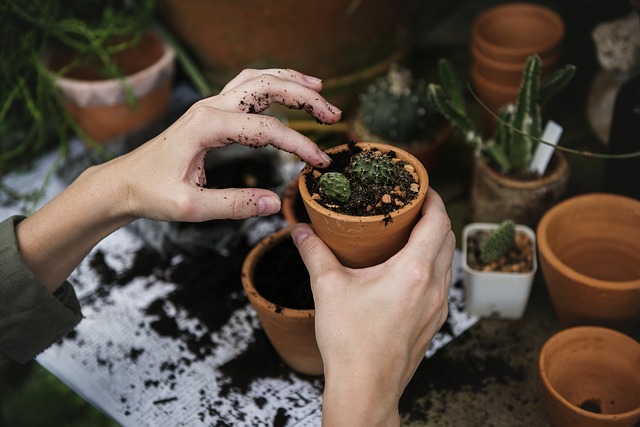Working your hand through the soil in a garden is something that can be enjoyed by all ages. If gardening is a hobby you enjoy, and you have children, they probably have already witnessed your time spent working in the soil and caring for your plants. In fact, they may have tried to help in some manner, or mimicked your chores in the past.

Help your children foster a sense of responsibility to the landscape with simple responsibilities that help them grow in confidence, and learn about the benefits of gardening. All ages of children can become involved, and if your child is mobile and able to grasp tools, with a little supervision can be easily tasked with chores appropriate to their age level.
Ideas to Get Children More Involved
Sometimes it can be difficult to brainstorm age appropriate tasks, or get into the habit of including another person in the care of your yard. This can be especially true if you have supervision concerns, or are worried about something getting damaged. First off, remember that plants can be replaced and garden beds fixed, but the time spent with your child in the garden is irreplaceable.There are many ways you can provide ‘safe’ approaches for peace of mind.
- Assign Them a Task
Even the littlest child can be assigned a task. Small children can take on watering chores, that with a low flow of water and decent watering head can avoid overwatering, or high flow damage to soils. Backyardboss.net has some great tool suggestions that are fun for children to use and provide a degree of control for the parent.
- Provide Fun, Unique Tools to Work With
Having kid sized tools that little hands can grasp and work with is a good start to provide ownership of the idea. Other types of fun approaches include small wheelbarrows, watering cans, garden gloves, and stools to sit or kneel on.
- Give Them Their Own Space
Let your children take ownership of their very own plot of soil to call their own. This is a great way to create a learning garden away from your own where they can dig, plant, weed, and water with the knowledge of the work that goes into it from the start. If the land is not available, you can also create containers, or pot gardens and let them choose how to decorate and plant it – and care for it while it grows.
- Let Them Choose Their Plants
Allow your child to pick and choose which plants they want in their garden. This allows them ownership of their choice, and helps them explore the various growing habits of different types of plants. You can even take this a step further and give them choices based on simple facts of the care required to let them take even further responsibility for their decision. To make it more interesting for them you can get some grow tents and allow your kids to understand how the tents help the plants grow.
- Allow Them to Explore
Let them explore without guidance to see how soil, water, and plants need care and attention. If a plant is lost, it can be replaced and used as a great teaching tool. It is also fun to see the ecosystem interact as well, and learn what bugs are beneficial, and which aren’t. Depending on the age of the child you can even create scavenger hunts that including the living world they are working within, and include children’s gardening books to find information in.
Benefits of Children in the Garden
Not only do you benefit from your child learning some responsibility, but the laughter and comradery of working together in a garden is a great way to bond. Children and adults alike will only grow from the little bit of effort it takes to have your children more involved with garden care.
- Engages Senses
Children are able to engage in all five senses and make connections with what they are experiencing. This is especially helpful for very young children to experience cause and effect.
- Encourages Healthy Choices
Not only is working outdoors healthy due to the increase in movement, vitamin D and fresh air you receive, but if you are growing your own food, children will naturally want to eat it. This can be taken a step further to introduce them to the kitchen and cooking with what you have harvested.
- Practices Motor Skill Development
Grasping, holding, pulling, and digging are all ways to support and improve upon both gross and fine motor skills. Hand eye coordination is also being practiced and used when working out of doors and with tools.
- Teaches Responsibility
Gardens require a degree of care and attention, or they can die. Children can easily understand what steps are supportive of a healthy plant, and what is not, and what is required of them to help nurture and grow their plants.
- Develops Math and Science Skills
Working in the yard literally surrounds you with biological science and simple math practices. Spacial awareness and planning, as well as hypothesis and best practices are all a part of growing a garden of any size.

